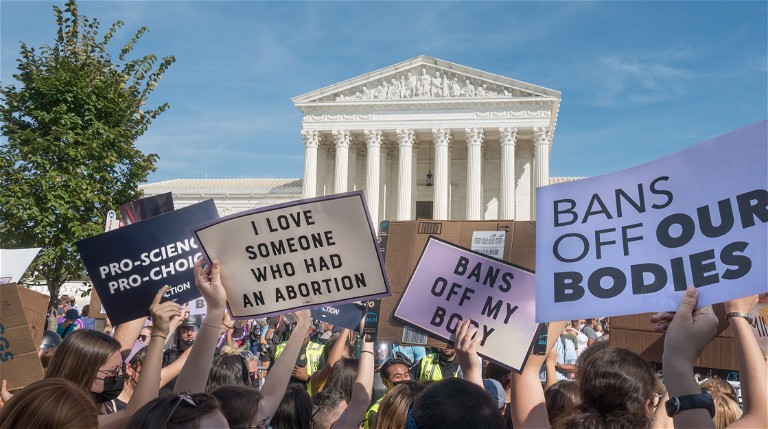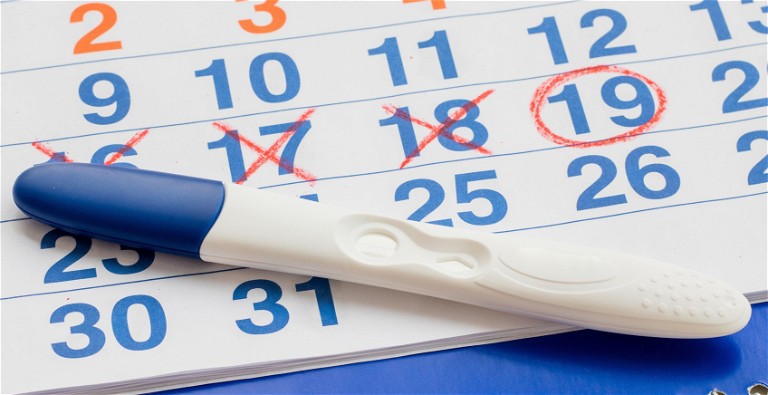Feature
An overview of women’s health in 2024
Betsy Goodfellow from Pharmafocus considers the current landscape of women’s health, covering recent debates and ongoing issues within the reproductive health sphere

It has been an extremely interesting few months, if not years, in the field of women’s health as many areas of the specialism have been up for debate, from additional legislation regarding menopause to abortion rights and fertility discussions. There have also been various developments in this area of healthcare, from the opening of new facilities to new treatments and increased access to certain medications.
Since 2022 when the US law Roe v Wade was overturned, abortion rights have been up for debate worldwide. The US law originally allowed: an absolute right to abortion in the first trimester or first three months of pregnancy; some government regulation during the second trimester; and states could restrict or ban abortion in the final trimester, however abortions could be obtained in the third trimester if a doctor could certify that it was necessary to save the pregnant person’s life.1 However, in overturning the law, the US Supreme Court has in effect banned all abortion after 15 weeks, as well as allowed individual states to ban or restrict abortion further, effectively ending the constitutional right to abortion that was previously in place.1
As well as impacting abortion care, this decision has led to issues in other areas of reproductive and women’s health, such as in vitro fertilisation (IVF) practices. For example, recently it was ruled in Alabama, US, that frozen embryos can be considered ‘children’, which has already allowed multiple wrongful death lawsuits to be brought against a clinic where a patient removed some frozen embryos from the cryogenic storage area.2 Consequently, three couples lost their embryos and are now able to sue the clinic, on grounds of wrongful death of a child.2 It is likely that this could also lead to potential legal issues with other fertility treatments, as well as increased criminalisation surrounding pregnant women and fertility clinics.2
Highlighting the differences globally, in some countries abortion has become more easily accessible, with France becoming the first country in the world to enshrine the right to abortion in its constitution.3 Additionally, the first over-the-counter birth control pill was approved by the US Food and Drug Administration (FDA) last year and is now being shipped to US pharmacies, where it will become available to women of all ages without a prescription.4
Along with these developments in the area of abortion care and contraception, since the overturning of Roe v Wade there has been an increase in social awareness and activism surrounding women’s health. For example, 21-year-old singer-songwriter Olivia Rodrigo recently established the Fund 4 Good campaign, supporting people worldwide who are seeking access to reproductive medicine. Her ongoing US tour also partnered with the National Network of Abortion Funds and attendees could pick up free condoms and emergency contraception from stands at the shows.5 This activism was emphasised further at shows in states like Missouri, where abortion is banned.5 It is hugely significant to see celebrities using their platforms to spread awareness of reproductive health and rights, especially at a time when certain areas of women’s health are under such scrutiny.
Additionally, there have been problems surrounding pregnancy. This includes the potential closures of some maternity wards, for example in London.6 The Royal College of Midwives has been protesting against these closures, however a decision on this is not expected until January 2025.6 Furthermore, various NHS hospitals are on the brink of closure due to a shortage of midwives.7 However, teams at some of these hospitals have put together recruitment plans in an attempt to combat this issue.7 Moreover, some IVF and egg-freezing clinics have been shown to be misleading their clients about the chance of conceiving, with the UK’s fertility regulator, the Human Fertilisation and Embryology Authority (HFEA), stating that it is concerned about the information shared with those who are considering egg freezing.8 It appears that such clinics will openly advertise their successful thaw rates of 80-95%, referring to the defrosting of eggs for use in fertility treatments, without clarifying that the probability of this resulting in a successful pregnancy is much lower as there are various other stages involved in IVF.8 The actual success rate for IVF with previously frozen eggs is much lower, with the rate of successful pregnancy resulting from IVF with fresh eggs being 20-30% depending on age.8 For those in their 40s, this can drop to as low as 5% according to HFEA, and the rate when frozen eggs are used being even lower.8 It is concerning that these clinics are willing to mislead clients about their chances of a successful pregnancy, presumably to make a profit, despite this having a potential real impact on clients’ mental and physical health.

Some women have also reported a lack of support following miscarriages, however various governments are now working to rectify this. In England, parents who lose a baby before the 24-week mark can receive a certificate recognising their loss, whereas in Wales only babies who die after 24 weeks are recorded as stillbirths, with no recognition for deaths earlier than this, although the Welsh Government has stated that it is working on a solution to this.9 As well as government changes, some employers have begun giving their employees paid leave following a miscarriage before 24 weeks; employers who already offer this include John Lewis, Lidl, Tesco and Santander, and the NHS is also beginning to role this out to its Trusts.10 After the 24-week mark, expectant parents who lose their baby are already eligible to receive paid maternity/paternity leave.10
There have also been some positive developments in the field of women’s health in recent years. For example, a women’s health-specific hub has recently opened in Sunderland, UK, which will provide access to care for gynaecology, sexual health and menopause issues.11 The hub is located at Hylton Medical Practice in Pallion, and is one of three to have opened in the area.11 Ruth Thompson, GP and clinical lead at the hub, commented: “Women’s healthcare hasn't been so joined up and hasn’t been so easy to access, so we want to make it as easy as possible.”11
In addition, the Somerset NHS Foundation Trust has introduced the Bleeding After Menopause Service, meaning that patients no longer need to see a GP to get a referral to a specialist, instead self-referrals can be made online or by phone.12 Since the launch of this service, the average waiting time for an appointment has reduced from 63 days to just four.12
Despite these recent significant changes in the field of women’s health, from abortion care to issues with IVF following the overturning of Roe v Wade and continual staffing and funding issues within the NHS, across the world women continue to fight to make their voices heard and to campaign for governments to recognise their right to choose.
References
- Visit: bbc.co.uk/news/world-uscanada-54513499
- Visit: theguardian.com/us-news/2024/feb/20/alabama-supreme-court-frozenembryos-children-ruling-ivf
- Visit: bbc.co.uk/news/worldeurope-68471568
- Visit: bbc.co.uk/news/world-uscanada-66191585
- Visit: bbc.co.uk/news/entertainmentarts-68564877
- Visit: bbc.co.uk/news/uk-england-london-68575786
- Visit: bbc.co.uk/news/uk-england-gloucestershire-68576198
- Visit: bbc.co.uk/news/uk-68505321
- Visit: bbc.co.uk/news/uk-wales-68559608
- Visit: bbc.co.uk/news/health-68544205
- Visit: bbc.co.uk/news/articles/c9x63k90k06o
- Visit: bbc.co.uk/news/uk-england-somerset-68407282